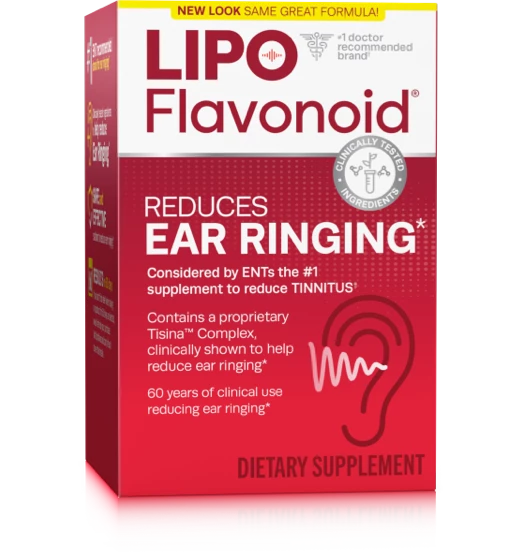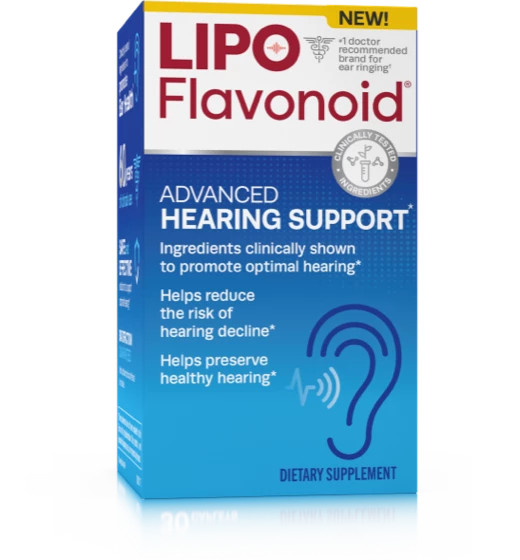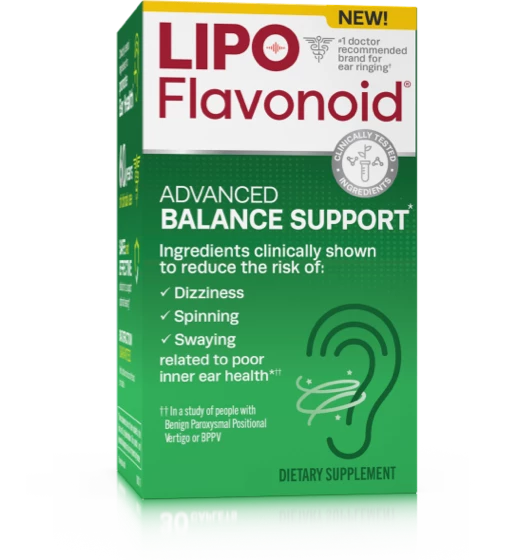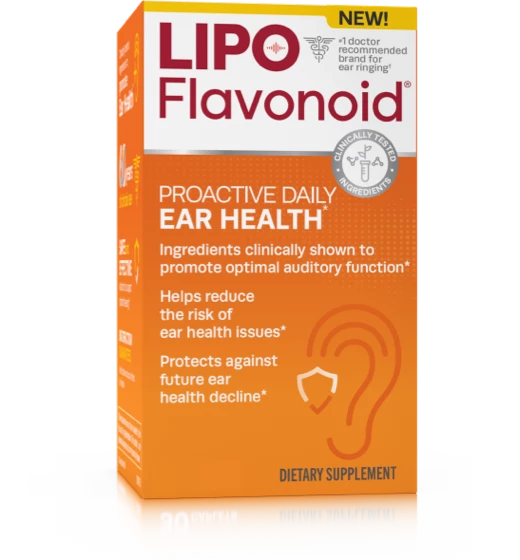- Products
- Science
-
Resources
- Tinnitus Resources
- What is tinnitus?
- Causes of tinnitus
- Tips for managing tinnitus
- Prepare for your doctor's visit
- PTSD and tinnitus
- Tinnitus FAQs
- Hearing Loss Resources
- What is hearing loss?
- Degrees of hearing Impairment
- Types of hearing loss
- Causes of hearing loss
- Treatment options for hearing loss
- Buy Now
- Coupons
- Test Your Hearing
- Test Your Hearing
- Healthcare Professionals
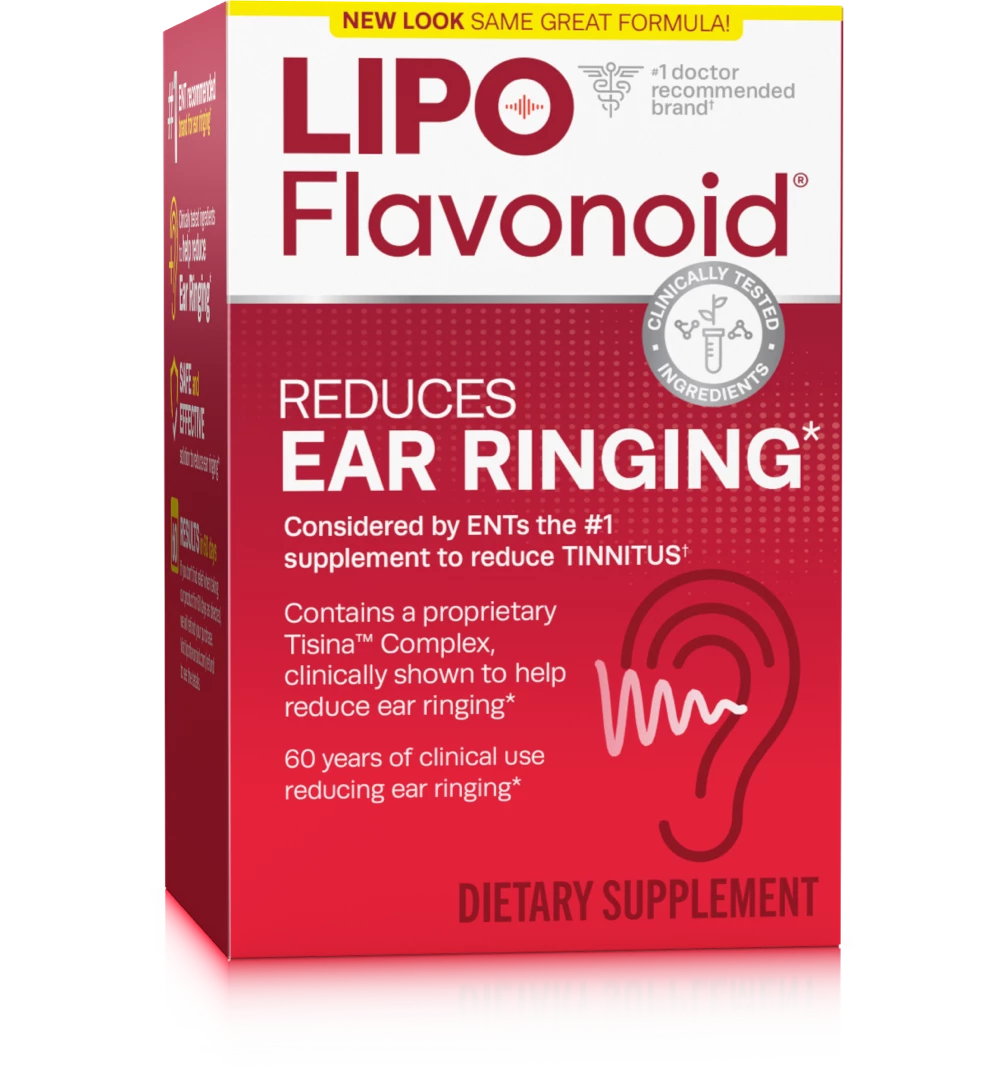
The Science ofEar Ringing Relief
What it is
Although tinnitus (ringing in the ears) is quite common – approximately 10% of the adult population is affected says the Journal of the American Medical Association – there are currently no FDA-approved medications available to treat it. Instead, tinnitus sufferers and their healthcare providers work to manage the condition’s distressing symptoms with hearing aids, counseling, sound therapy, and supplements.
Lipo Flavonoid’s Ear Ringing Relief (previously Lipo-Flavonoid Plus) is a natural bioflavonoid product with an exclusive Tisina Complex TM and essential vitamins for your inner ear that has been used extensively for decades for the treatment of Meniere’s syndrome and Tinnitus. It has been utilized and evaluated in clinical settings for over 60 years and continues to be the #1 recommendation of doctors for relief of ringing in the ears1.
Why treat tinnitus with natural citrus bioflavonoids?
Our Ear Ringing Relief products combine lemon bioflavonoid eriodictyol glycoside with other essential nutrients to help support ear health. Clinical experience reported in medical journals indicates that patients can experience considerable benefit from lemon bioflavonoids.2-8
Ingredients
A proprietary blend of high quality ingredients providing relief for ringing in the ears
- Eriodictyol glycoside (lemon citrus bioflavonoid)
- Vitamin C (as ascorbic acid)
- Vitamin B-1 (thiamine mononitrate)
- Vitamin B-2 (riboflavin)
- Niacin (niacinamide)
- Vitamin B6 (pyridoxine HCI)
- Vitamin B12 (cyanocobalamin)
- Pantothenic acid (as calcium pantothenate)
- Choline Bitartrate
- Inositol
Ear Ringing Relief Night also contains melatonin*
- 3 mg immediate-release to help fall asleep
- 2 mg time-release to help stay asleep
How it Works
Ear Ringing Relief contains a proprietary blend of essential B and C vitamins along with high potency ingredients, clinically shown to be important to functionality of the inner ear. Learn how the key ingredients in the formula work inside your body.
Lemon Bioflavonoids*
Eriodyctiol Glycoside in the bioflavonoid can improve micro circulation and prevent fatty deposits in the inner ear, while also potentially blocking histamine production. Additionally, hesperetin, a derivative of eriodictyol, can prevent neurodegenerative diseases by reversing the factors that cause them, such as oxidative stress and neuroinflammation. Its ability to inhibit apoptotic cell death makes hesperetin a promising drug for preventing and treating neurodegenerative conditions.
Vitamin B1*, B2, B6*
B vitamins are essential for maintaining a healthy nervous system and supporting inner ear neurons. These neurotropic B vitamins act as coenzymes and protect nerves from damage, contributing to the transmission of auditory signals to the brain. Deficiencies in these vitamins can lead to neurological diseases or malfunctions, but even without a proven deficiency, they can improve certain neurological conditions. Therefore, B vitamins are crucial for providing neurological support and protecting the nerves that send neurons to the brainstem.
Vitamin B12*
Clinical research has noted a deficiency of Vitamin B12 in patients with tinnitus.
BID, twice per day; mg, milligram; TID, three times per day
* Active ingredient in Ear Ringing Relief
* Always consult with a healthcare professional before taking any new dietary supplement. If you are under medical supervision or using any tranquilizers or sedatives, seek the advice of your healthcare professional prior to using melatonin. Consult your healthcare professional prior to using melatonin if you have an autoimmune condition, depressive disorder or are pregnant or lactating. Do not take melatonin when operating machinery or driving a vehicle. People with allergies to soy, wheat, or corn should consult their healthcare professional before taking melatonin. Keep out of reach of children.
Sleep Disturbances and Tinnitus
For sleep disturbances, Lipo-Flavonoid now offers a new product containing melatonin – Ear Ringing Relief Night.
Each caplet contains the same #1 doctor-recommended1 ingredients as original Lipo-Flavonoid Plus with the addition of evening melatonin* to help you fall asleep and stay asleep. For best results, take your morning and midday dose of Lipo-Flavonoid Plus, then take Lipo-Flavonoid Night, with added time-release melatonin, in the evening. Each Lipo-Flavonoid Night dose contains 3 mg immediate-release melatonin to help fall sleep and 2 mg time-release melatonin to stay asleep.
Melatonin* is a substance produced naturally in the brain and is also available over-the-counter to help regulate sleep and wake cycles. More than 3 million Americans concerned about their sleep patterns are already reaching for melatonin.11
According to a study in Otolaryngology-Head and Neck Surgery,12 patients with tinnitus who took daily melatonin saw improvements in what they’d previously rated as “poor” sleep.
Similarly, in the Annals of Otology, Rhinology & Laryngology,13 researchers found “Melatonin is associated with a statistically significant decrease in tinnitus intensity and improved sleep quality in patients with chronic tinnitus.”
To learn more, read this Guidelines Advisory or this White Paper
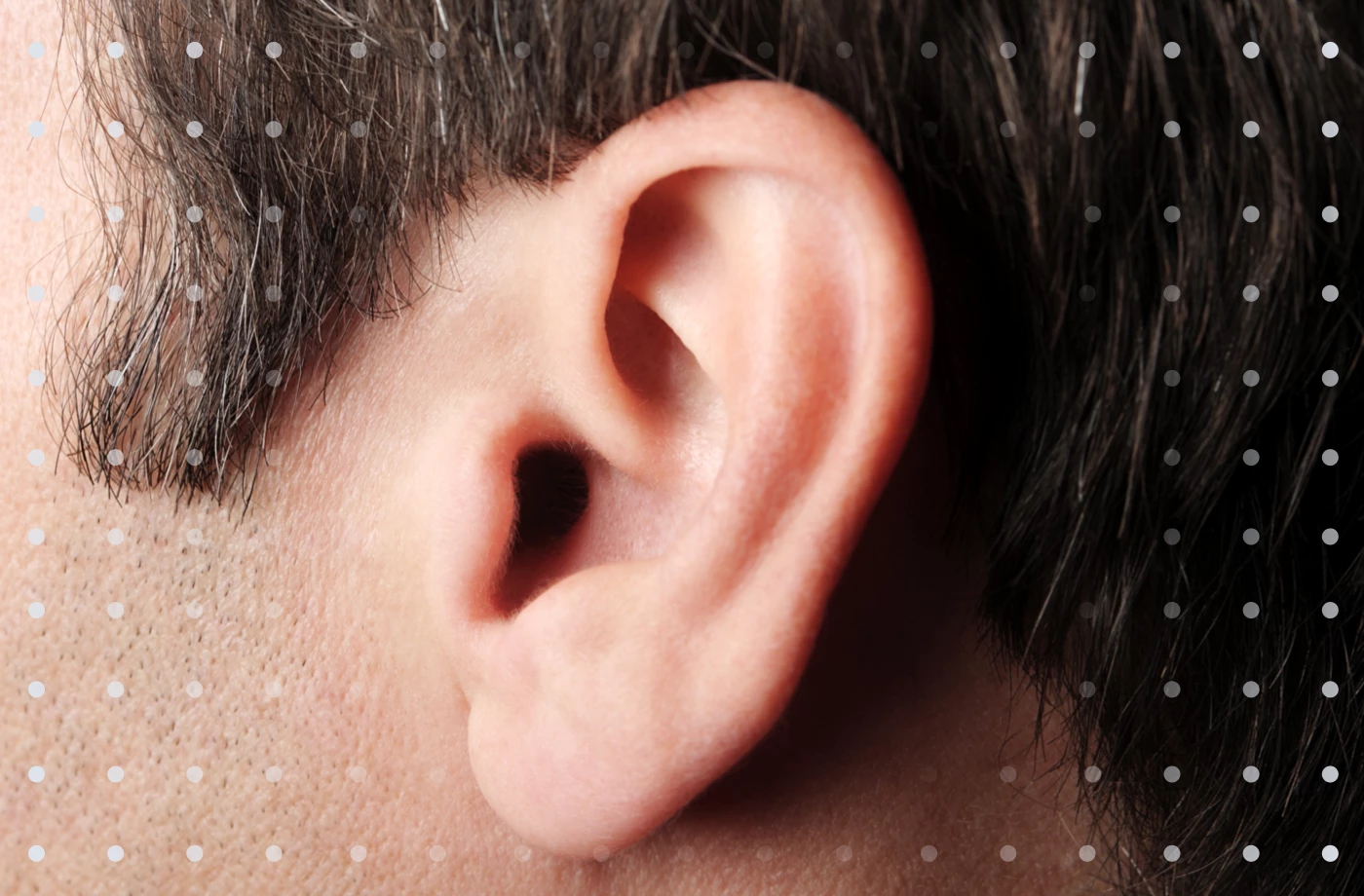
Advanced Hearing Support
Learn about this once daily supplement with an innovative formula full of ingredients clinically proven to help reduce the risk of future hearing decline.
Learn more
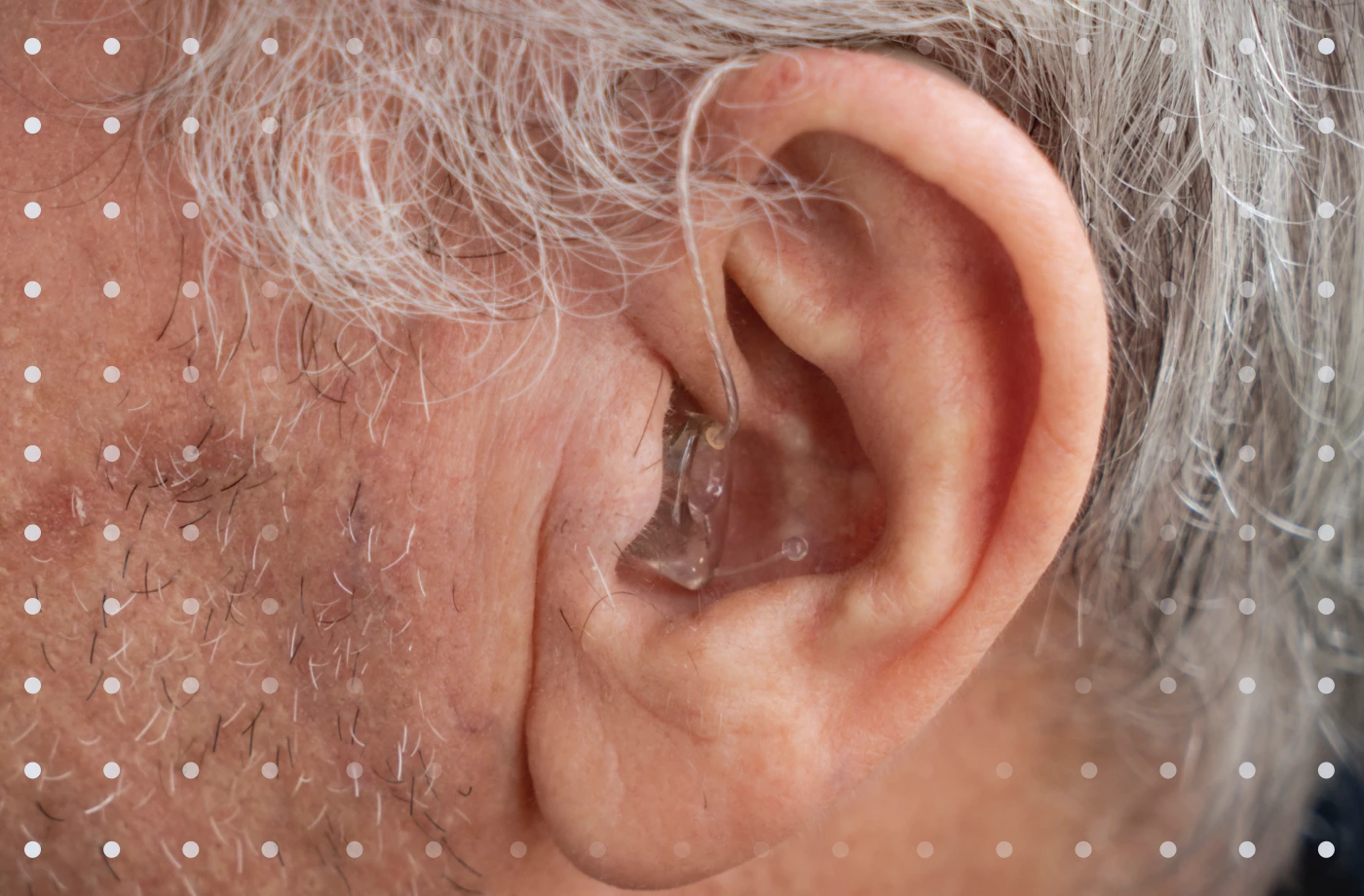
Advanced Balance Support
Learn about this daily supplement formulated to help mitigate the risks of dizziness, balance issues, falls, and related declines in quality of life.
Learn more
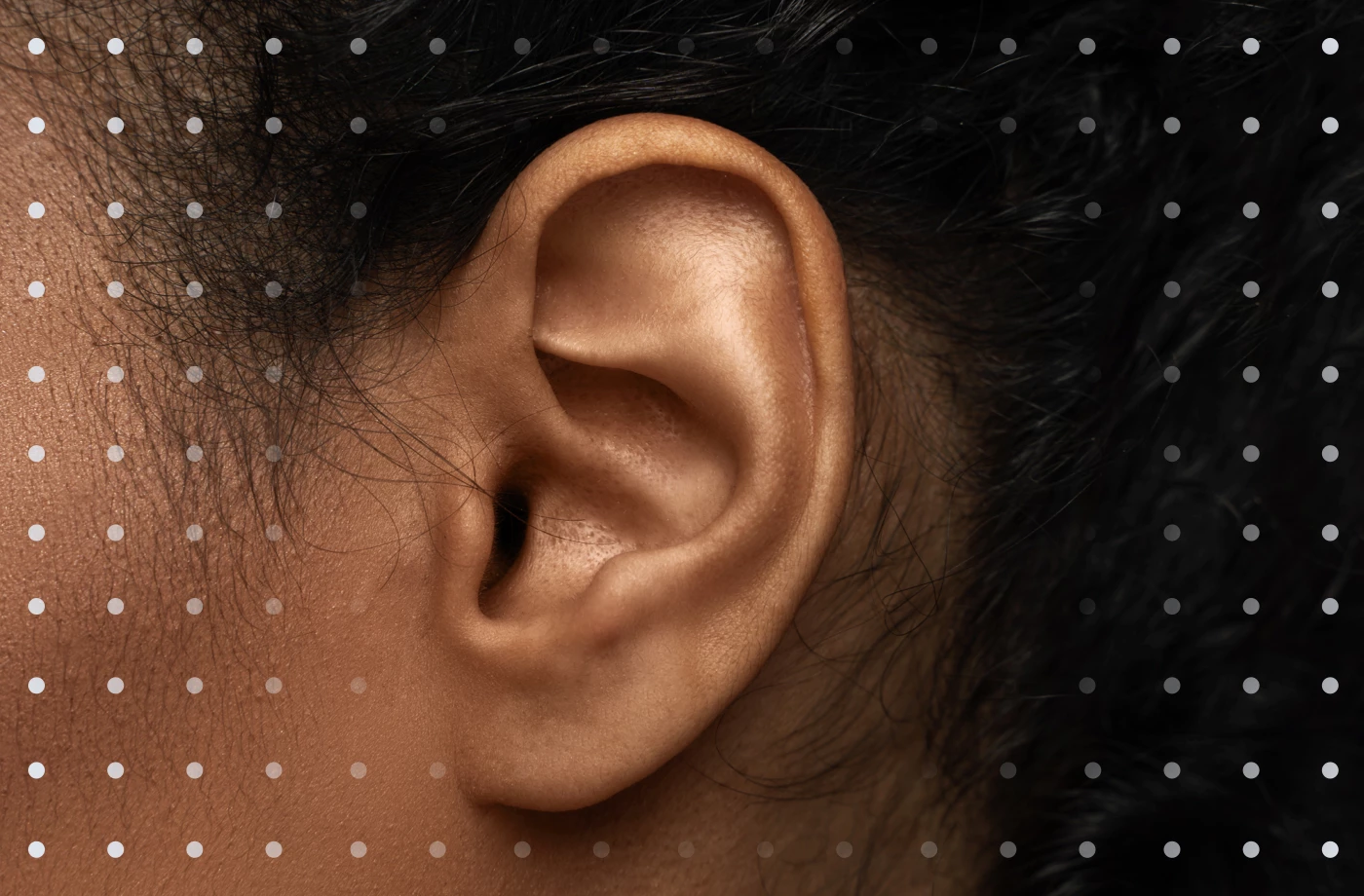
Proactive Ear Health
Learn about this daily supplement formulated to mitigate the risks of future ear health issues such as loss of hearing, balance issues and ear infections.
Learn more
Explore our full family of ear health products
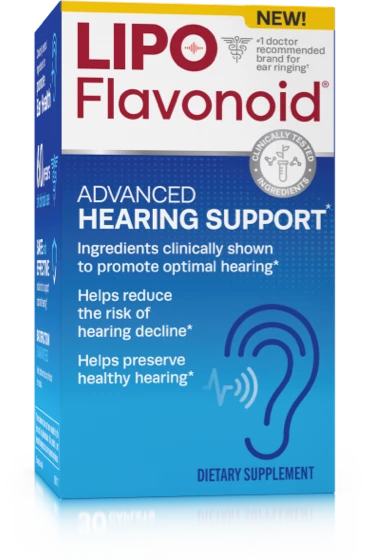
Hearing
Support
Support
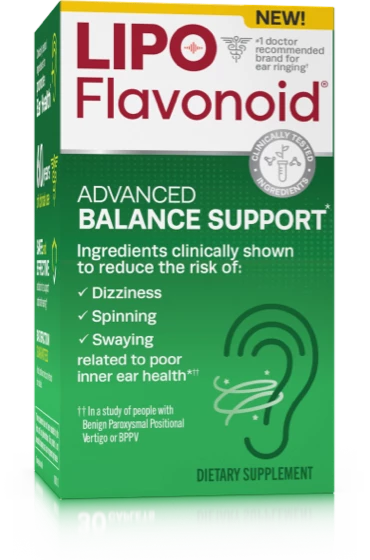
Balance
Support
Support
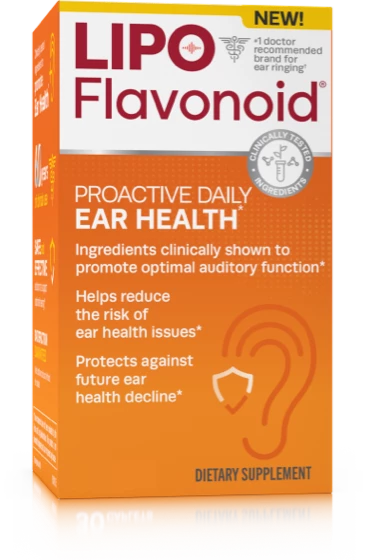
Proactive
Ear Health
Ear Health
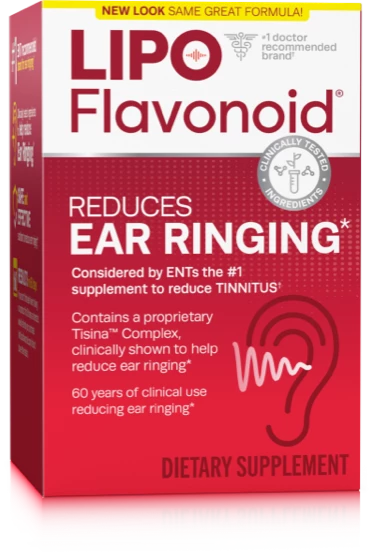
Ear Ringing
Relief
Relief
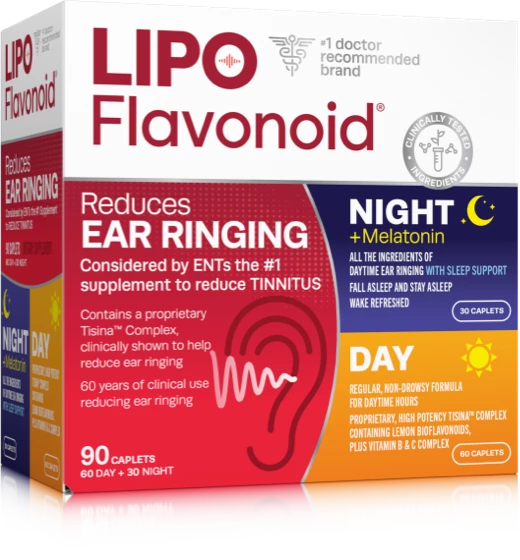
Ear Ringing Day/
Night Combo Pack
Night Combo Pack
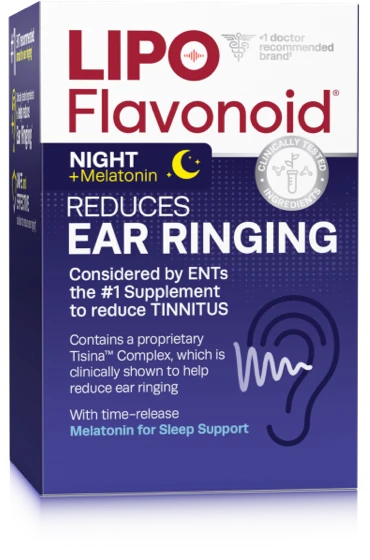
Ear Ringing
Nighttime Relief
Nighttime Relief
*These statements have not been evaluated by the Food and Drug Administration. These products are not intended to diagnose, treat, cure or prevent any disease.
*Survey data on file
REFERENCES:
- April 2018 Survey. Clarion Brands Inc. data on file.
- Williams H, Hedgecock L. Citrus Bioflavonoids, Ascorbic Acid and Other B-vitamins in the Treatment of certain types of neurosensory deafness a preliminary report. Staff meeting of the Mayo Clinic (1962).
- Tinnitus Overview. Mayo Clinic website http://www.mayoclinic.org/diseases-conditions/tinnitus/basics/definition/con-20021487. Accessed Sept. 7, 2016.
- Understanding the Facts. American Tinnitus Associations website https://www.ata.org/understanding-facts. Accessed Sept. 7, 2016.
- Slattery WH, Fayad JN. Medical treatment of Meniere's disease. Otolaryngologic Clinics of North America 1997; 30:1027-37.
- Kumar S, Pandey AK. Chemistry and Biological Activities of Flavonoids: An Overview. The Scientific World Journal. 2013;2013:162750. doi:10.1155/2013/162750.
- Fetterman BL, Saunders JE, Luxford WM. Prognosis and treatment of sudden sensorineural hearing loss. Am J Otol 1996; 17:529-36.
- Arenberg I, Bayer R. Therapeutic Options in Meniere’s Disease. Arch Otolaryngol 1977;103: 589-93.
- Shaia F, Sheehy J. Sudden sensori-neural hearing impairment: a report of 1,220 cases. Laryngoscope 1976; 86:389-98.
- Herschberg S. Meniere’s disease. J Am Osteopathic Association 1974; 73:540-6.
- Wolfson R. Treatment of Meniere’s disease. Modern Treatment (1969) 6,3, 553-567.
- Rubin W. Vestibular suppressant drugs. Arch Otolaryngol 1973; 97:135-8

